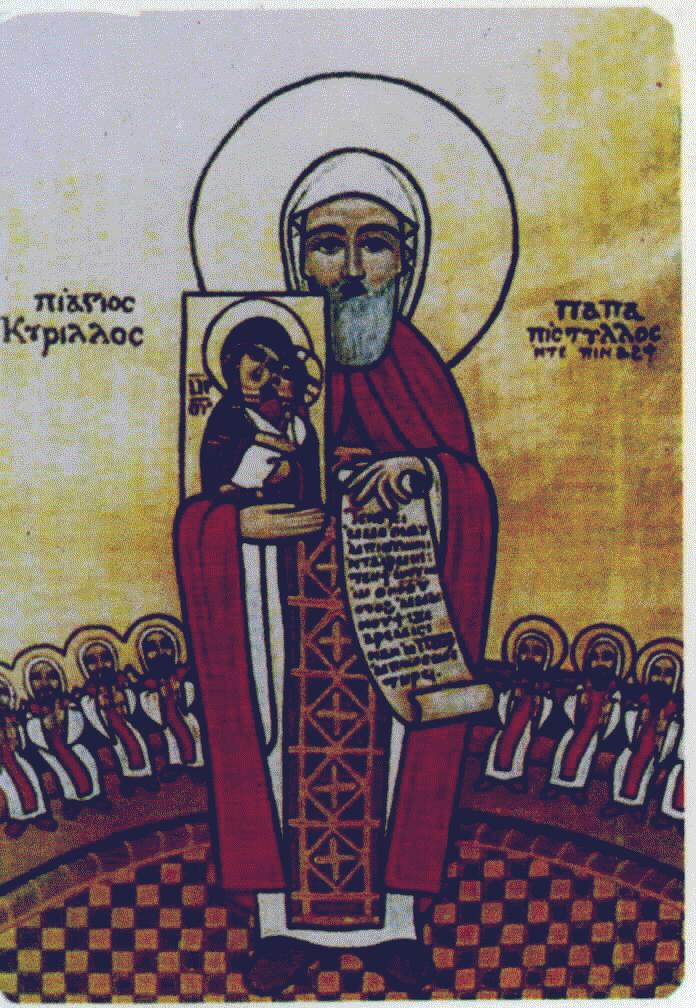
Feast day: June 27
Saint Cyril of Alexandria was born around 376 in Egypt. His uncle was the powerful Patriarch of Alexandria. Cyril received an unparalleled education in grammar, rhetoric, and theology. After his uncle’s death, Cyril became the Patriarch, or Pope, of Alexandria, despite protests from some Christian groups.
Cyril is known for his tireless defense of Christian orthodoxy. He is considered a Father of the Church and also as a Doctor of the Church, due to his writings and teachings on Christian truth. As Patriarch of Constantinople, Cyril could not help but be involved in the religious controversies of his day. Unfortunately, these controversies often led to violence, both between various Christian factions and extending to Jews and others considered as heretics.
Cyril used his authority to shut down churches involved in heresy and required them to be re-baptized. After a Jewish attack on Christians, he expelled Jews from Alexandria. (Some historians believe that it was all Jews; others say it was only the Jews who had participated in the attack.) At one point, Cyril was accused of the murder of a pagan woman, an astronomer and philosopher, who was very influential in Alexandria and was killed by a mob of Christians. This was a false accusation, but it indicates how far the Christians of these times, resorting to murder, had fallen from Gospel ideals.
Cyril is admired for his defense of Jesus’ divinity and humanity in the face of the heresy of Nestorius, which taught that Jesus was solely divine and not human. At the Council of Ephesus, Cyril represented the Pope and fiercely argued against the Nestorian heresy and defended Mary as truly the Mother of God. Cyril died about 444, but the theological controversies he had faced continued for decades. The Council of Constantinople (553 A.D.) recognized his preaching by noting his contributions to theology: "St. Cyril who announced the right faith of Christians."
There is no doubt that Cyril made some bad decisions as a Christian and as a bishop. He was definitely not born a saint! No one is. However, he gradually grew more moderate, even when his own allies pressed him to be condemnatory. As he was dying, he was asked to condemn the teacher of Nestorius (the originator of the Nestorian heresy against which he had fought his all his life) and he refused to do so. This is a good reminder that, while we are obliged to do good and avoid evil, it is best to leave all judgment, of ourselves and others, to God.
(Image by Solitary Copt at English Wikipedia, Wikimedia Commons)